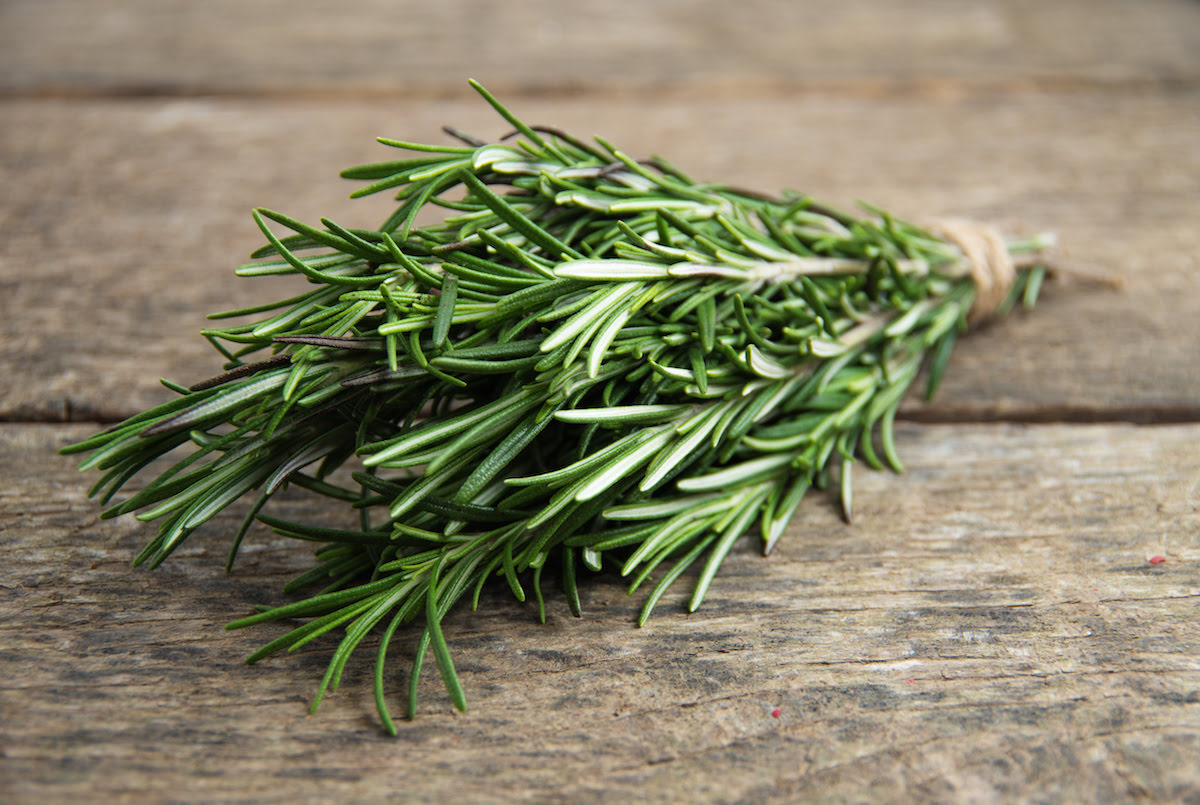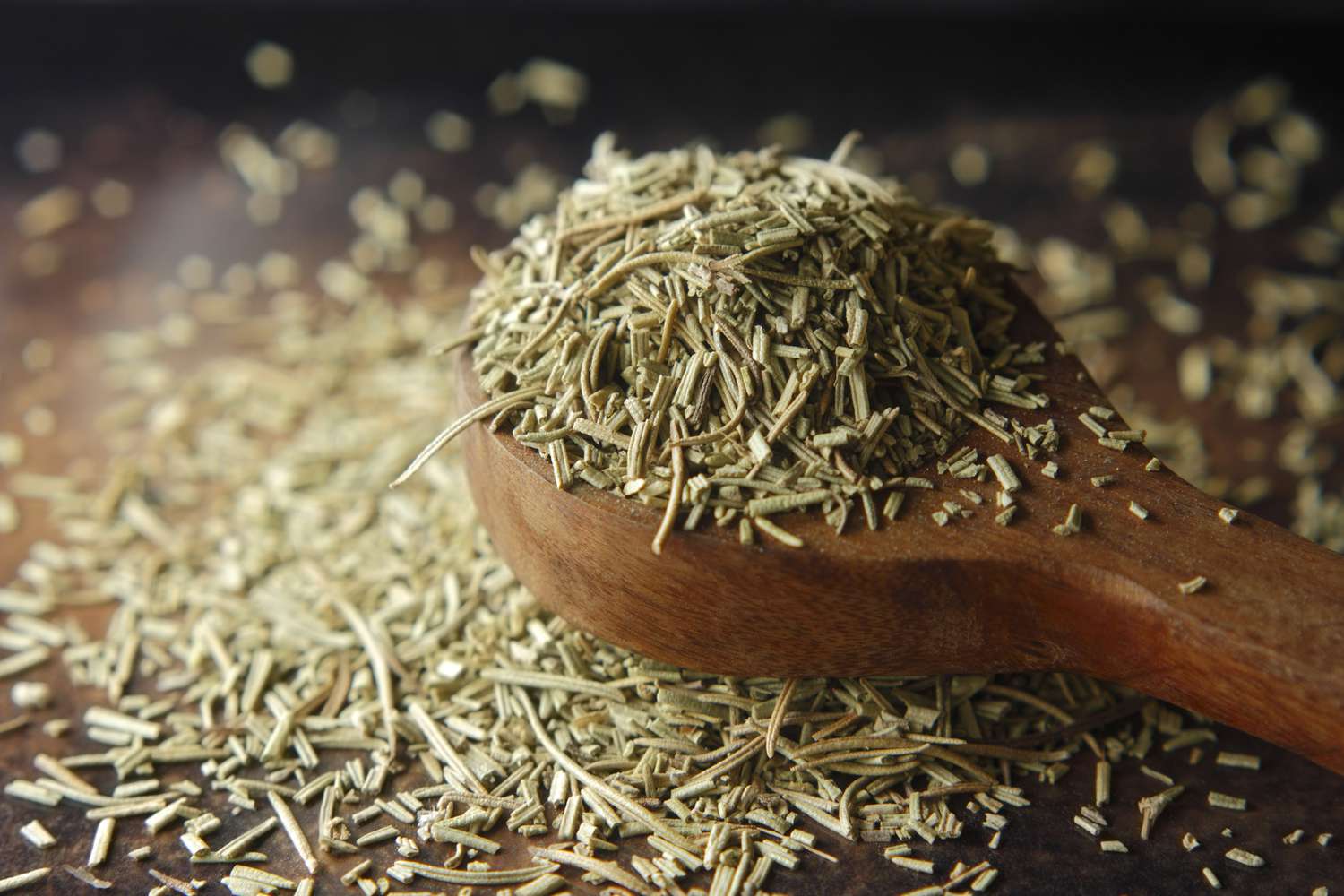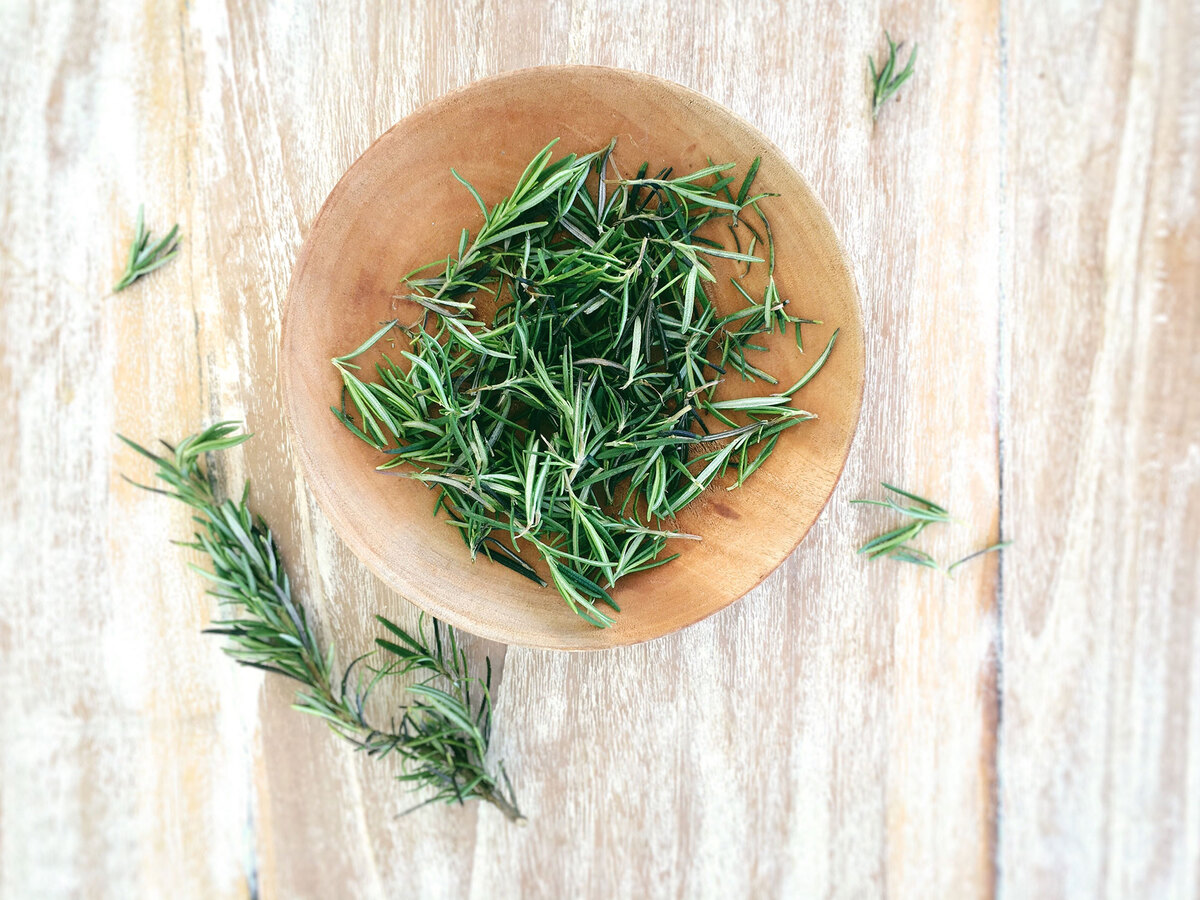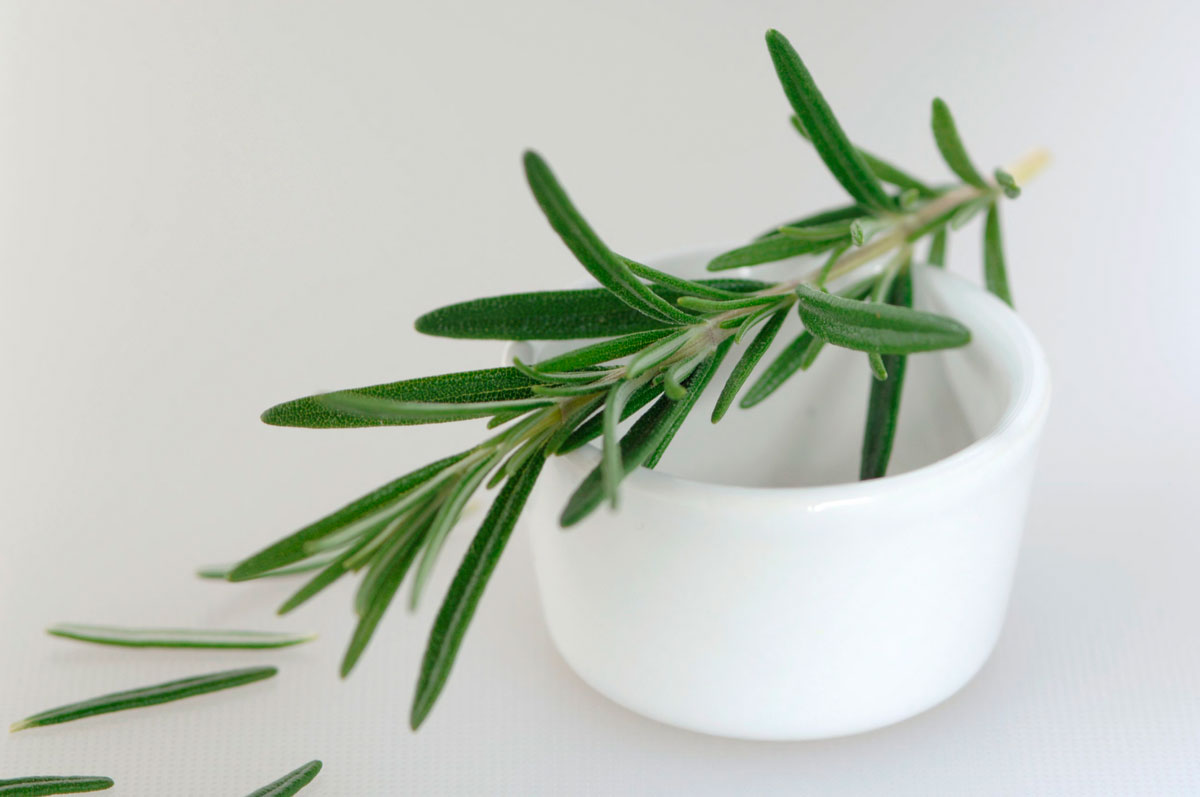Home>Types of Gardening>Edible Gardening>How To Use Rosemary Herb


Edible Gardening
How To Use Rosemary Herb
Published: January 30, 2024
Learn how to use rosemary herb in your edible gardening. Discover the best practices for growing, harvesting, and incorporating this aromatic herb into your culinary creations.
(Many of the links in this article redirect to a specific reviewed product. Your purchase of these products through affiliate links helps to generate commission for Chicagolandgardening.com, at no extra cost. Learn more)
Table of Contents
Introduction
Welcome to the world of edible gardening, where you can grow your own fresh and delicious herbs right in your backyard! One herb that deserves a special place in your garden is rosemary. With its aromatic leaves and distinct flavor, rosemary is not only a culinary delight but also offers numerous health benefits.
Rosemary (Rosmarinus officinalis) is a perennial herb native to the Mediterranean region. It has been prized for centuries for its culinary and medicinal properties. The herb is known for its needle-like leaves, which give off a delightful fragrance when crushed or rubbed.
Not only does rosemary add a wonderful flavor to dishes, but it also contains a variety of beneficial compounds that promote overall health and well-being. From its antioxidant properties to its potential anti-inflammatory effects, this versatile herb has a lot to offer.
In this article, we will explore the benefits of rosemary herb, how to select and store fresh rosemary, creative ways to use it in cooking, and even how to make your own rosemary-infused oil and tea.
Whether you have a green thumb or are just starting your gardening journey, you’ll find valuable information and inspiration on incorporating rosemary into your edible garden and daily life.
Benefits of Rosemary Herb
Rosemary not only adds a delightful flavor to your dishes but also offers an array of health benefits. Let’s take a closer look at how this herb can enhance your well-being:
- Rich in Antioxidants: Rosemary is loaded with powerful antioxidants that help protect your body from free radicals, which can cause cellular damage and lead to chronic diseases.
- Supports Digestive Health: The essential oils found in rosemary can stimulate digestion, relieve bloating, and reduce symptoms of indigestion.
- Boosts Memory and Concentration: In traditional medicine, rosemary has long been associated with cognitive benefits. Studies suggest that the aroma of rosemary may enhance memory, concentration, and mental clarity.
- Promotes Hair and Scalp Health: Rosemary has been used for centuries as a natural remedy for hair care. It can stimulate hair growth, soothe an itchy scalp, and help prevent dandruff.
- Provides Anti-Inflammatory Effects: The compounds in rosemary, such as rosmarinic acid, have anti-inflammatory properties. These may help reduce inflammation in the body and alleviate symptoms of inflammatory conditions like arthritis.
- Supports Heart Health: Rosemary contains compounds that have been shown to lower blood pressure and improve cardiovascular health. It may also help reduce the risk of heart disease.
- Enhances Immune Function: The antioxidants present in rosemary can strengthen the immune system and help protect against common infections.
- Potential Anti-Cancer Properties: Preliminary studies suggest that the active compounds in rosemary may have anti-cancer effects by inhibiting the growth of cancer cells.
These are just a few of the many benefits that rosemary herb can offer. Whether used in cooking, applied topically, or consumed as an herbal tea, incorporating rosemary into your routine can support your overall well-being.
How to Select Fresh Rosemary
When it comes to choosing fresh rosemary, there are a few key factors to consider. By selecting the right sprigs, you can ensure the best flavor and quality for your culinary creations. Here are some tips on selecting fresh rosemary:
- Appearance: Look for vibrant green sprigs with firm stems. Avoid any rosemary that appears wilted, discolored, or has brown or black spots.
- Aroma: Gently crush a small portion of the rosemary between your fingers to release the aroma. Choose sprigs that have a strong, fragrant smell, as this indicates freshness.
- Leaves: Check the leaves for their texture and color. They should be plump and tender, without any signs of yellowing or drying out.
- Organic and Pesticide-Free: If possible, opt for organic rosemary to reduce your exposure to pesticides and ensure a more natural herb.
It’s worth noting that fresh rosemary is generally available year-round in most grocery stores, but its peak season is during the spring and summer months. If you have the opportunity, you can also consider growing your own rosemary plant in a sunny spot of your garden or in a container.
Remember, selecting fresh rosemary is essential to experience its full flavor and aroma in your culinary creations. So, take a moment to examine the sprigs and choose the best ones for your needs.
Storing and Preserving Rosemary
Proper storage and preservation techniques can help extend the life of your fresh rosemary, ensuring that it stays flavorful and aromatic for as long as possible. Here are some tips on how to store and preserve rosemary:
- Refrigeration: Fresh rosemary can be stored in the refrigerator for up to two weeks. To keep it fresh, wrap the sprigs loosely in a damp paper towel and place them in a sealed plastic bag or container.
- Freezing: Freezing rosemary is an excellent way to preserve it for an extended period. Rinse and pat dry the sprigs, then chop them or leave them intact. Place the sprigs in an airtight container or freezer bag and store in the freezer for up to six months.
- Drying: Drying rosemary is another option if you want to have the herb available for an even longer period. Tie several sprigs together with twine and hang them upside down in a cool, dry place. Once the leaves are fully dried and crumble easily, remove them from the stems and store them in an airtight container.
- Infused Oils and Vinegars: Another way to preserve rosemary flavor is by infusing it into oils or vinegars. Simply place fresh rosemary sprigs in a bottle or jar, cover with your choice of oil or vinegar, and let it infuse for a few weeks. Strain out the sprigs and store the infused oil or vinegar in a cool, dark place.
Remember to label your stored rosemary with the date to ensure you use the freshest ones first. Additionally, keep in mind that dried rosemary may have a more concentrated flavor, so use it sparingly in your recipes.
By using these storage and preservation methods, you can enjoy the flavor and aroma of rosemary long after it has been harvested.
Using Rosemary in Cooking
Rosemary is a versatile herb that can greatly enhance the flavor of various dishes. Whether you’re preparing savory meats, roasted vegetables, or even baked goods, here are some creative ways to incorporate rosemary into your cooking:
- Marinades and Rubs: Create a flavorful marinade or rub for meats like chicken, lamb, or pork by combining minced rosemary with olive oil, garlic, lemon juice, and your choice of seasonings.
- Infused Butters: Whip softened butter with finely chopped rosemary to create a delicious herb-infused butter. Spread it on bread, melt it over grilled steaks, or use it to sauté vegetables for added flavor.
- Roasted Vegetables: Toss your favorite vegetables, such as potatoes, carrots, or Brussels sprouts, with olive oil, minced rosemary, salt, and pepper. Roast them in the oven for a fragrant and flavorful side dish.
- Soups and Stews: Add a couple of sprigs of rosemary to your soups or stews during the cooking process to infuse them with a delightful herbal aroma and taste.
- Bread and Baked Goods: Sprinkle chopped rosemary over homemade bread dough before baking or incorporate it into savory scones, biscuits, or focaccia for a unique and delicious twist.
- Sauces and Dressings: Finely chop fresh rosemary and add it to your homemade sauces, dressings, or vinaigrettes for a burst of herbaceous flavor.
- Grilled or Skewered Foods: Skewer chunks of meat, poultry, or vegetables with rosemary sprigs for added flavor and aroma as they cook on the grill or in the oven.
Remember, rosemary has a strong flavor, so start with a small amount and adjust to your taste preferences. The aromatic and earthy notes of rosemary can take your culinary creations to the next level and impress your family and guests.
Infusing Rosemary Oil
Rosemary-infused oil is a simple yet versatile ingredient that can add a burst of flavor to your cooking or be used in various beauty and wellness applications. Infusing rosemary into oil is a great way to extract its aromatic compounds and create a flavorful oil that can be used in a variety of recipes. Here’s how to infuse rosemary oil:
- Choose Your Oil: Select a high-quality oil with a mild flavor that can complement the taste of rosemary. Common choices include olive oil, grapeseed oil, or sunflower oil.
- Prepare the Rosemary: Wash and dry fresh rosemary sprigs to remove any dirt or debris. Gently crush or bruise the leaves to release their aromatic oils.
- Combine the Ingredients: Place the rosemary sprigs into a clean glass jar and cover them completely with the chosen oil. Ensure that the rosemary is fully submerged in the oil.
- Infusion Process: Seal the jar tightly and place it in a cool, dark place, such as a pantry or cupboard. Allow the rosemary to infuse in the oil for at least two weeks to extract its flavors fully. You can occasionally shake or gently swirl the jar to help with the infusion process.
- Straining: After the infusion period, strain the oil to remove the rosemary solids. You can do this by pouring the oil through a fine-mesh strainer or cheesecloth into a clean container. Press the rosemary solids gently to extract any remaining oil.
- Storage: Transfer the infused rosemary oil into a sterilized, airtight bottle or jar. Store it in a cool, dark place to maintain its flavor and freshness. Properly stored, rosemary-infused oil can last for several months.
Once you have your rosemary-infused oil, you can use it in a variety of ways. Drizzle it over salads, roasted vegetables, or grilled meats for a delightful herbal touch. You can also use it as a dipping oil for bread or as a base for homemade salad dressings and marinades.
Remember to label your infused oil with the date and type of oil used for future reference. Enjoy the aromatic and flavorful benefits of your homemade rosemary-infused oil in your culinary creations.
Making Rosemary Tea
Rosemary tea is a soothing and aromatic herbal infusion that not only offers a pleasant flavor but also provides potential health benefits. Whether you’re looking for a warm drink to relax with or seeking natural remedies, here’s how to make rosemary tea:
- Gather Fresh or Dried Rosemary: You can use either fresh rosemary sprigs or dried rosemary leaves to make tea. If using fresh rosemary, gently crush the sprigs to release their oils.
- Boiling Water: In a teapot or heatproof container, bring fresh, filtered water to a boil.
- Preparation: Place the rosemary sprigs or leaves into a tea infuser or directly into your teapot. Use approximately 1 teaspoon of dried rosemary or 2 teaspoons of fresh rosemary per cup of water.
- Infusion Process: Pour the boiling water over the rosemary and cover the pot or cup to steep. Allow the tea to steep for about 5-10 minutes, or longer if you prefer a stronger flavor.
- Sweeten and Flavor: You can enjoy rosemary tea as is, or add a natural sweetener like honey, a splash of lemon juice, or a cinnamon stick for extra flavor. Adjust the sweetness and flavorings to your preference.
- Strain and Serve: Once the desired flavor is achieved, remove the rosemary sprigs or strain the tea to remove the leaves. Pour the rosemary tea into cups and serve it hot.
Rosemary tea is a delightful beverage that can be enjoyed at any time of the day. It offers a refreshing and herbal taste, with potential health benefits such as improving digestion, boosting the immune system, and promoting relaxation. It can be a comforting drink on its own or a lovely addition to your herbal tea collection.
Experiment with different variations by combining rosemary with other herbs like mint, chamomile, or lavender to create unique herbal tea blends. Sip and savor the flavors while reaping the potential benefits of this flavorful herbal infusion.
Rosemary Herb in Natural Remedies
Besides its culinary uses, rosemary has a long history of being used in natural remedies and traditional medicine. This versatile herb is known for its potential health-promoting properties. Here are some ways in which rosemary herb is used in natural remedies:
- Respiratory Health: Rosemary is believed to have expectorant properties that can help relieve respiratory congestion. Inhaling the steam from a rosemary-infused hot water bowl or using rosemary essential oil in a diffuser may provide relief from coughs, colds, and sinus congestion.
- Scalp and Hair Care: Rosemary is commonly used in hair and scalp treatments to stimulate hair growth, address dandruff issues, and nourish the scalp. Infusing rosemary leaves in carrier oils like coconut or jojoba, and massaging the mixture onto the scalp, may promote healthier hair and scalp conditions.
- Memory and Mental Clarity: In aromatherapy, the scent of rosemary oil is believed to enhance memory retention and mental focus. Diffusing rosemary oil in a study or work area may provide a stimulating effect on the mind and boost cognitive function.
- Stress Relief: The aroma of rosemary is known to have calming and stress-relieving properties. Adding a few drops of rosemary essential oil to a warm bath or using it in massage oils may help promote relaxation and provide a sense of tranquility.
- Topical Pain Relief: Rosemary oil has been used topically to alleviate minor aches and pains. Diluting the oil in a carrier oil and applying it to affected areas may provide temporary relief from muscle soreness, joint discomfort, or tension headaches.
- Antiseptic and Anti-inflammatory Properties: Some studies suggest that rosemary has antiseptic and anti-inflammatory properties. Preparations containing rosemary extracts or essential oil may be used topically on minor cuts, wounds, or skin irritations to help cleanse and soothe the affected area.
While there is historical evidence and anecdotal support for the use of rosemary in natural remedies, it is important to note that these remedies are not intended to replace medical advice or treatment. It is always advisable to consult with a healthcare professional before using rosemary or any other herb for therapeutic purposes.
By incorporating rosemary into your natural remedies toolkit, you can explore its potential benefits for various health-related concerns. However, it is crucial to gather reliable information and exercise caution when using herbs for therapeutic purposes.
Precautions and Side Effects of Rosemary
While rosemary is generally considered safe when used in moderation, there are a few precautions and potential side effects to be aware of. It is important to exercise caution, especially if using rosemary medicinally or in high doses. Here are some considerations:
- Allergies: Some individuals may be allergic to rosemary or other plants in the Lamiaceae family, such as mint, basil, or sage. If you have known allergies to these plants, it is advisable to avoid rosemary or consult with a healthcare professional before using it.
- Drug Interactions: Rosemary may interact with certain medications, including blood thinners, ACE inhibitors, diuretics, and lithium. If you are taking any medications, it is recommended to consult with a healthcare professional before using rosemary therapeutically.
- High Doses: Consuming large amounts of rosemary orally or applying concentrated rosemary oil topically may lead to adverse effects. It is best to use rosemary in moderation and follow recommended dosage guidelines.
- Pregnancy and Breastfeeding: Pregnant or breastfeeding women should exercise caution when using rosemary. It is advisable to consult with a healthcare professional before using rosemary in any form during these periods.
- Seizure Disorders: Individuals with a history of seizure disorders or epilepsy should avoid using rosemary in high concentrations or consult with a healthcare professional before use.
- Sensitivity Reactions: Some individuals may experience skin irritation or allergic reactions when applying rosemary oil topically. It is recommended to perform a patch test before using rosemary oil directly on the skin and discontinue use if any adverse reactions occur.
As with any herb or natural product, it is important to remember that individual responses and sensitivities can vary. If you have any concerns or questions about using rosemary, it is always best to consult with a healthcare professional or a qualified herbalist.
By being aware of these precautions and potential side effects, you can use rosemary safely and make informed decisions about its use based on your specific health circumstances.
Conclusion
Rosemary is truly a remarkable herb, offering a myriad of benefits for both culinary and medicinal purposes. From its enticing aroma and delicious flavor to its potential health-promoting properties, rosemary is a valuable addition to any edible garden or kitchen pantry.
By selecting fresh rosemary, storing it properly, and utilizing it in cooking, you can elevate your dishes to new heights with its unique and aromatic taste. Infusing rosemary into oil or making a cup of rosemary tea allows you to explore its versatility and potential health benefits.
Furthermore, rosemary can be used in natural remedies to address various concerns, ranging from respiratory health to stress relief and beyond. However, it is crucial to exercise caution, especially in cases of allergies, interactions with medications, and certain medical conditions.
Whether you’re a seasoned gardener, a culinary enthusiast, or someone interested in natural remedies, rosemary provides a wealth of opportunities to explore and enjoy. So, why not plant some rosemary in your garden, stock it in your kitchen, and embrace the abundance of flavors and potential health benefits this remarkable herb has to offer?
Remember to approach the use of rosemary with mindfulness, respect for its potential interactions and side effects, and consult with a healthcare professional when needed. With proper care and knowledge, you can fully appreciate and savor the wonders of rosemary in your everyday life.







